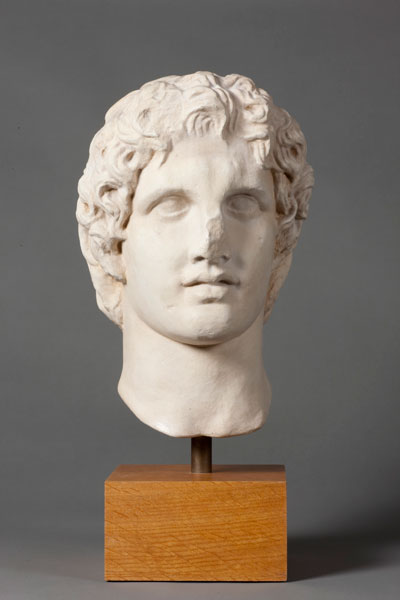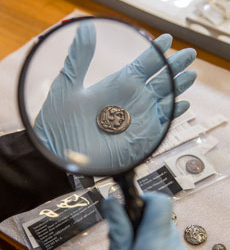Contact us
University of Canterbury
Private Bag 4800, Christchurch
New Zealand
By the time of Alexander the Great's death in 323 BCE, just a month before his thirty-third birthday, he had conquered the largest empire the world had yet seen.
At the end of his short life, Alexander's influence spread from Macedonia and Greece in the west, throughout the Persian empire, and east into Asia and India. It is little wonder that images of Alexander became associated with the ideas of power and authority, and were used for many centuries on coins.
Alexander’s military campaign spread coinage in the Greek style throughout the East as far as the edges of India. His coinage began with the issue of his own coins from the mint at Tarsus in 333 BCE, which became known as 'Alexanders'. In turn, the world that emerged from the chaos of Alexander’s death created a new era for Greek coinage in the hands of his generals and successors. They utilized the image of Alexander to bolster their claims to power, and gave rise to such innovations as the depiction of a living ruler, and realistic portraiture on coins, that were fundamental to coinage in the next centuries.






University of Canterbury
Private Bag 4800, Christchurch
New Zealand
www.teecemuseum.nz
www.facebook.com/teecemuseum/
By clicking "Accept All Cookies", you agree to the storing of cookies on your device to enhance site navigation, analyse site usage, and assist in our marketing efforts.
0800 827 748 (within NZ)
+64 3 369 3999
Ext: 92111 (from a campus landline)
Direct dial: 0800 823 637
University of Canterbury | A Fair Trade University

